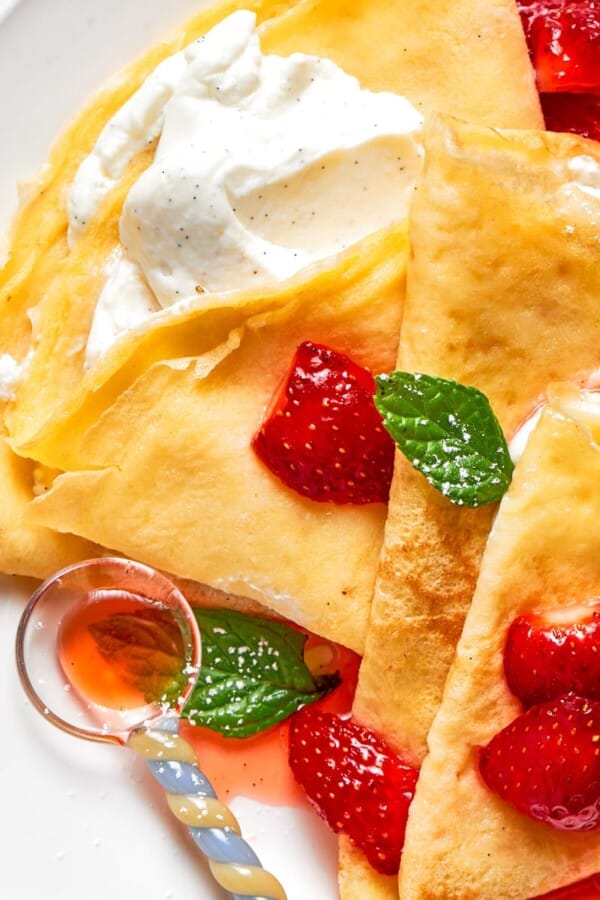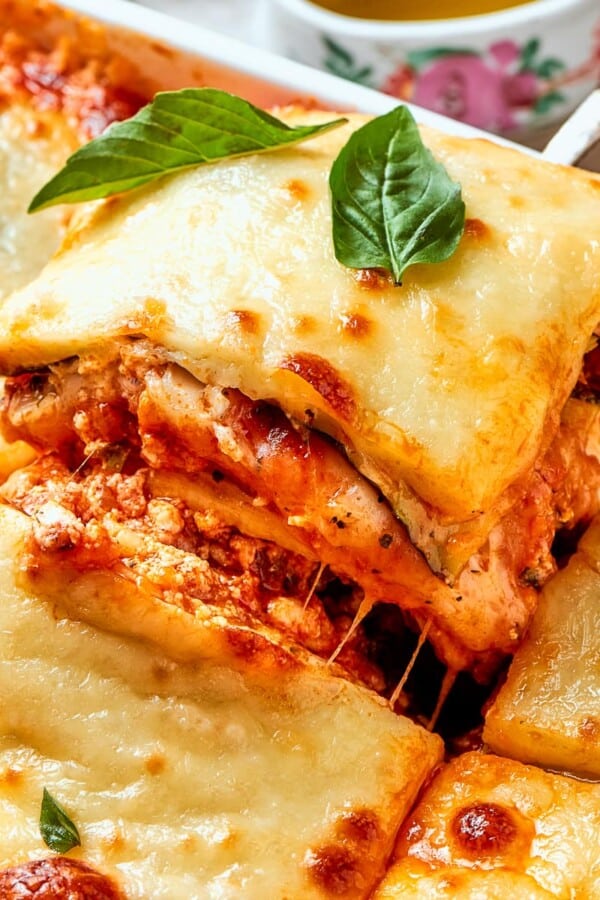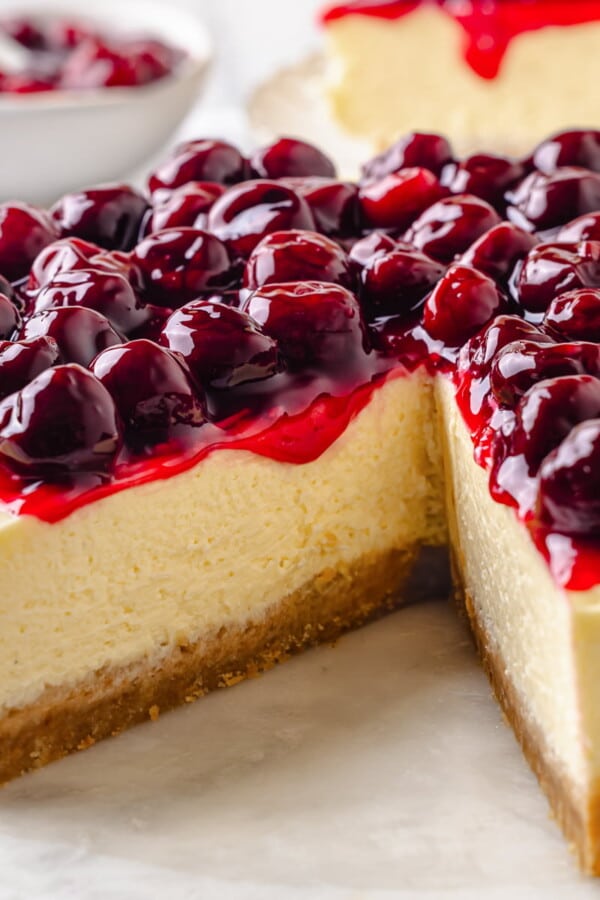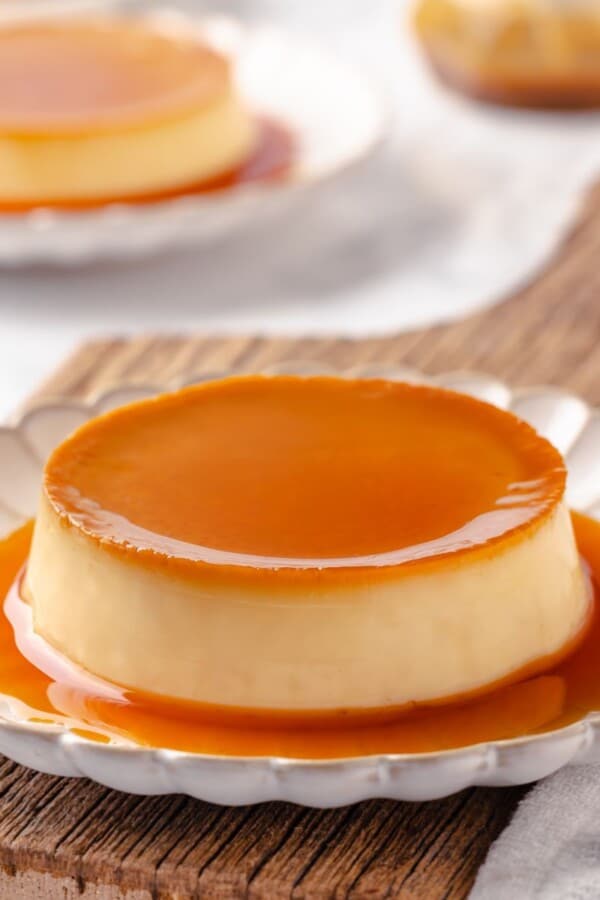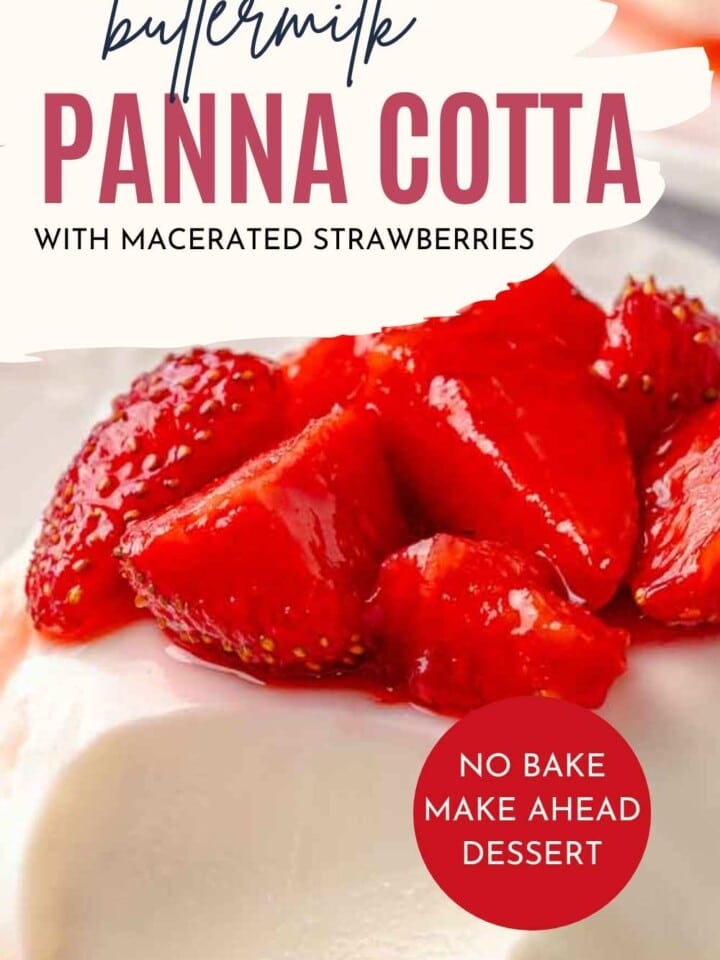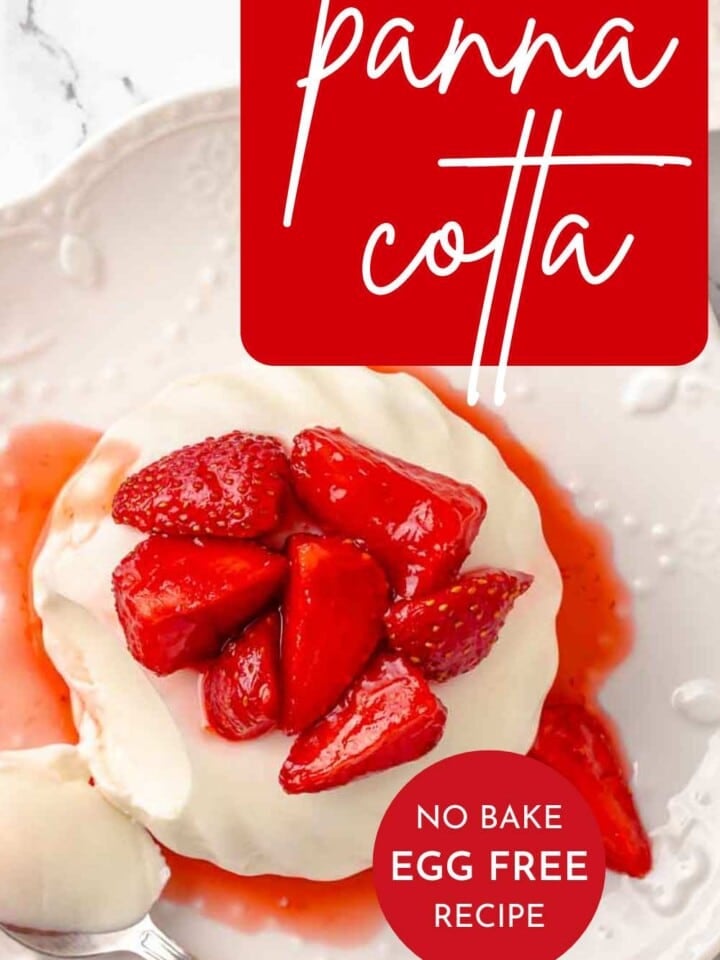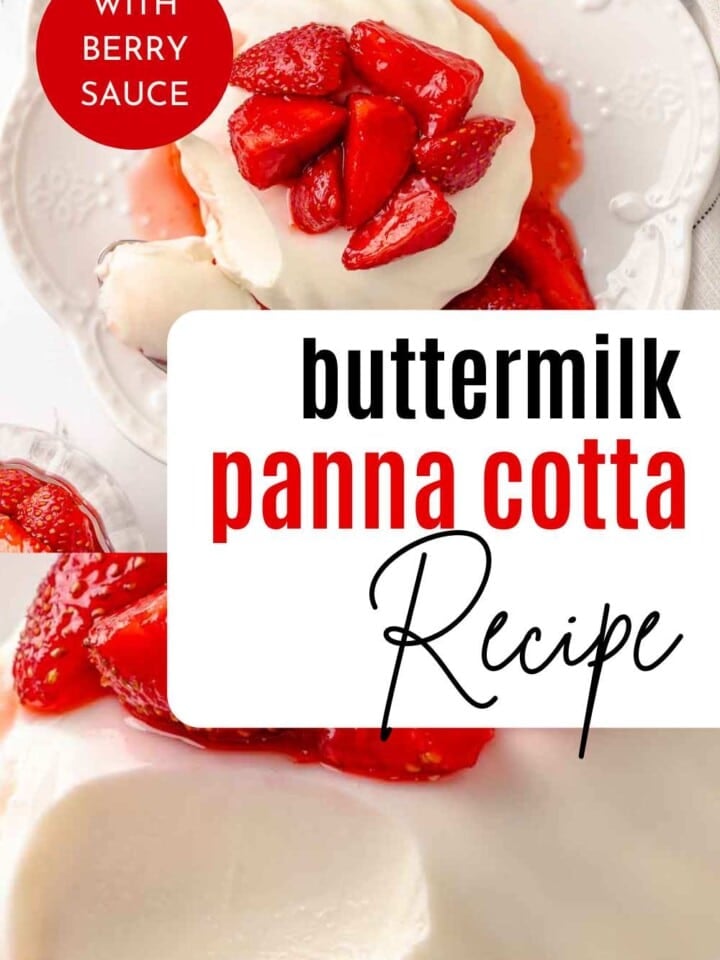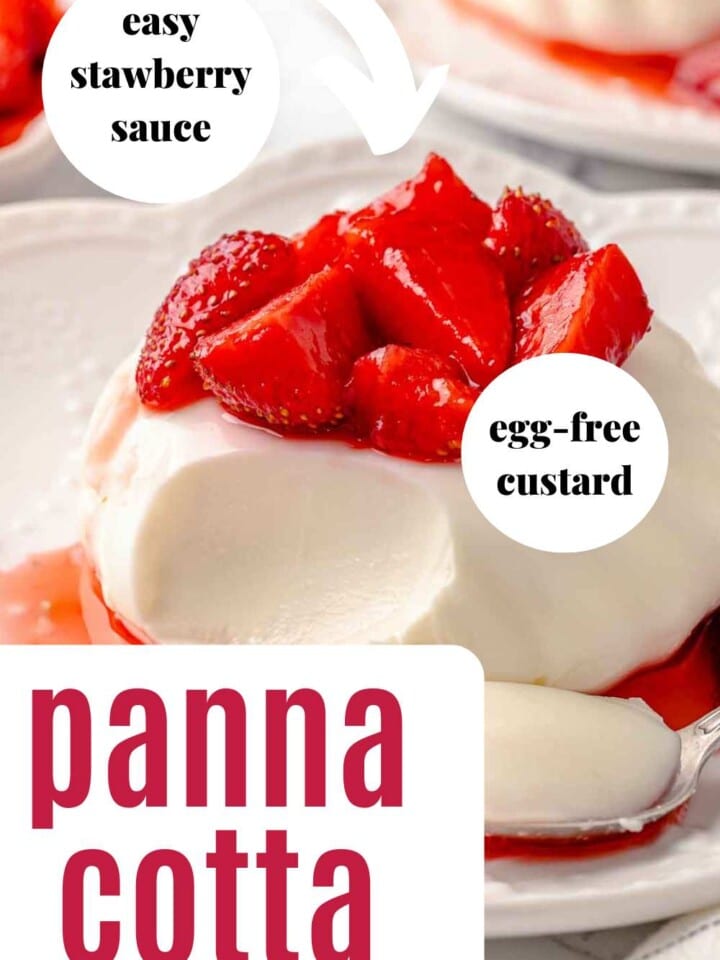This post may contain affiliate links. Please read our disclosure policy.
This is the best buttermilk panna cotta! It has a smooth, creamy texture with the perfect amount of gelatin. This easy panna cotta recipe has a vanilla flavor with a little tang from buttermilk tamed by a touch of brown sugar.
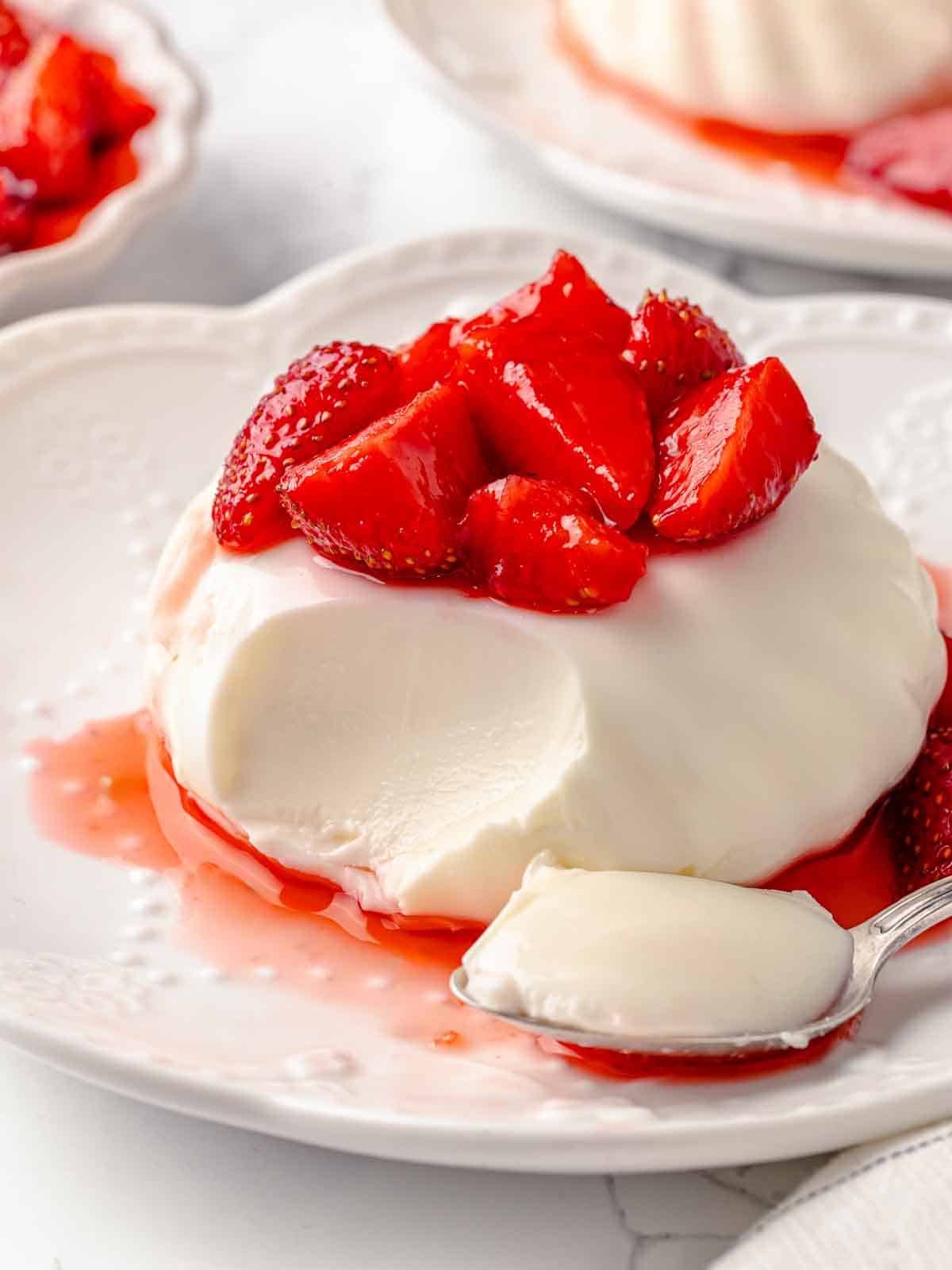
Perfecting a buttermilk panna cotta recipe is trickier than you might think. It has just enough gelatin to set the dairy and unmold but not so much to add an unpleasant flavor or mouthfeel. There is the right balance of sugar to enhance and tame the tanginess of the buttermilk and enough cream to make the texture rich and creamy.
As a pastry chef for an Italian restaurant in Manhattan, I perfected many variations on classic Italian desserts like this panna cotta, lemon olive oil cake, torta caprese, frangipane, and budino (vanilla pudding!).
Table of Contents
Why You Will Love this Buttermilk Panna Cotta
- A classic recipe, perfected. Not only did I test the perfect ratio of gelatin, but also the proportions of milk to heavy cream to buttermilk. Too much fat in panna cotta leaves an unappealing coating in the mouth and overwhelms the delicate flavor. Many are also cloyingly sweet – relying on sugar to compensate for flavor.
- A little bit of brown sugar balances the buttermilk. I found during testing that the molasses in brown sugar balances the flavor of the buttermilk. You want to taste the tanginess and flavor of buttermilk but you don’t want panna cotta to taste like solidified buttermilk.
- Delicious macerated berries. I served this panna cotta with macerated strawberries in the recipe below but it is the perfect dish for fresh berries, cherries or an easy blueberry sauce! I love a little sweetness in the topping in contrast with the tangy panna cotta.
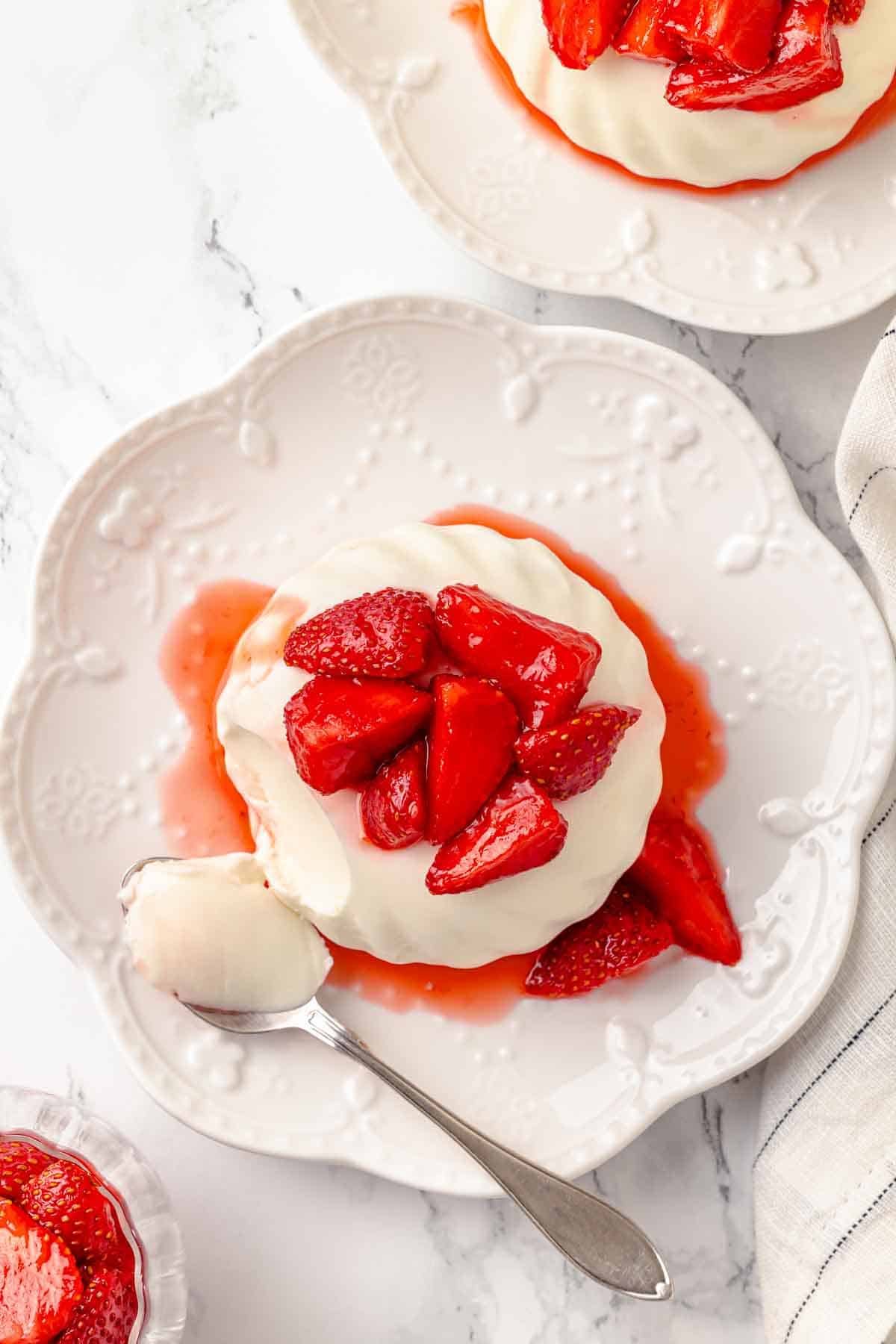
Professional Tips for Making Panna Cotta
- For the best flavor, divide the heavy cream & don’t heat the buttermilk. The flavor and texture of heavy cream and buttermilk change when it they are heated, so I add most of the cold cream and all of the buttermilk at the end rather than heating it with the milk and gelatin.
- Shake the buttermilk! Buttermilk separates, so I always give the closed container a thorough shake before measuring. I do not recommend “making your own” buttermilk using lemon juice and milk for this recipe.
- Freeze in silicone molds for easy unmolding. I give a lot of tips for unmolding these panna cotta below but you can freeze them for longer storage or for easier unmolding. Just allow 2 hours to thaw completely in the refrigerator prior to serving this easy make-ahead dessert.
- Unmold right before serving. Because I don’t use an excessive amount of gelatin for the best flavor and texture, they will lose their shape over time once removed from the molds. I remove the molds and place on the serving plate no more than 30 minutes prior to serving. Be sure to store in the fridge!
Ingredients & Substitutions
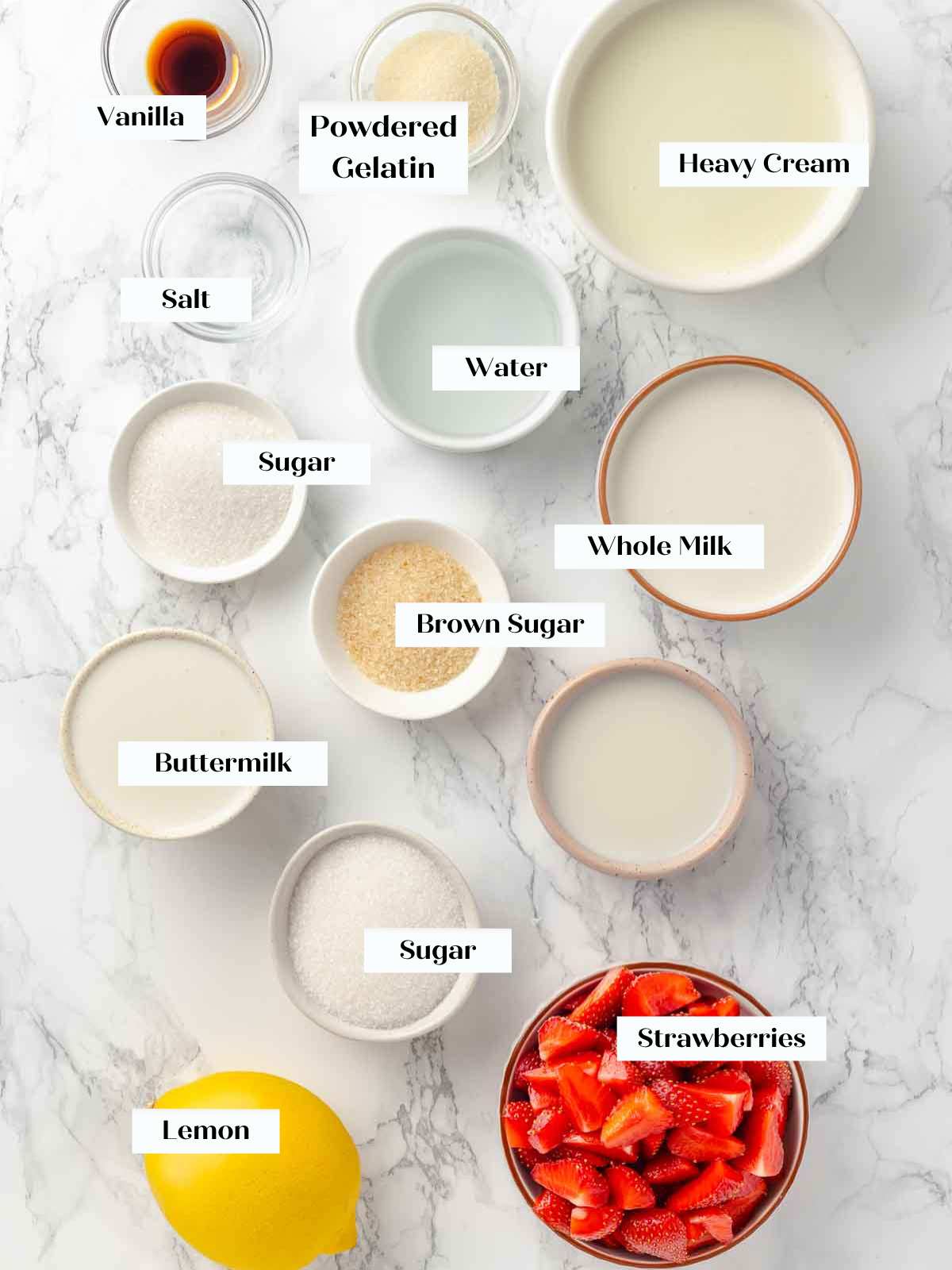
- Powdered gelatin: I’ve written the recipe for powdered unflavored gelatin because that is what most home cooks have on hand, but I originally developed this buttermilk panna cotta recipe using Silver sheet gelatin. I’ve included that measurement as well in case you would like to try!
- Cold Water: This is only necessary if you are using powdered gelatin. Sheets are bloomed in ice water and then squeezed to remove excess water before using.
- Whole Milk: I tested this recipe with whole milk. You can use a low fat milk or a milk alternative, but keep in mind that the gelatin might not be enough to hold it firm. If that is your goal, just test and keep an open mind!
- Heavy Cream
- Low Fat Buttermilk: I used low fat buttermilk for this recipe. You can use full fat but it is thicker than low fat and it could have an impact on texture. If you do not want to use buttermilk try this vanilla panna cotta recipe instead.
- Kosher Salt
- Light Brown Sugar: You can use dark brown sugar, 100% granulated sugar or a brown sugar substitute like Truvia. It is sweeter than brown sugar, so taste before you add the remaining granulated sugar.
- Granulated Sugar: You can use all brown sugar or any alternative sugar of your choice. Sugar isn’t essential here as it is in vanilla cupcakes or angel food cake, for example.
- Vanilla Extract: Vanilla is the flavor, so chose a quality pure vanilla extract. You could opt to use some vanilla bean paste in addition to half the vanilla extract.
- Fresh Strawberries: Washed, dried and sliced. If strawberries aren’t in season try thawed frozen blueberries, easy strawberry jam or loosen mixed berry jam with lemon juice for an easy berry sauce.
- Lemon: I add a squeeze of fresh lemon juice to macerate the strawberries to balance the sweetness and draw out more of the strawberry flavor. I also use this technique for my individual strawberry shortcake! To top it off, it helps make a nice natural plating sauce. (pun intended)
See the recipe card for full information on ingredients and quantities.
How to Serve Buttermilk Panna Cotta
Vanilla panna cotta is versatile and has a mild flavor. While it is delicious on its own, I prefer to serve buttermilk panna cotta with one or a combination of any of these ideas to round out the dish.
- Pair with any macerated or fresh fruit. You can substitute just about any fruit like plums, raspberries, blueberries, blackberries, peaches, or cherries for the strawberries in the recipe below. In the winter, citrus slices are a wonderful pairing. Try sûprèmes of oranges, blood oranges, grapefruits or all three!
- Add a cooked fruit topping. Try serving this panna cotta with chilled apple butter, apple compote or my easy blueberry sauce. Roasted chilled peaches or nectarines could be fun as well.
- Garnish with a crunchy component. You could add baked streusel topping, pumpkin seed brittle or candied pecans, walnuts or toasted pistachios! Top it with honey granola or this pumpkin spice granola for Fall vibes!
- Add a sauce on top or underneath. A dollop of easy lemon curd or a drizzle of honey or salted caramel sauce go a long way with panna cotta! The key is to enhance and not overwhelm. A spoonful of chocolate fudge sauce or chocolate ganache could be nice. You can also use easy strawberry jam, mixed berry jam or peach preserves thinned with a little lemon juice.
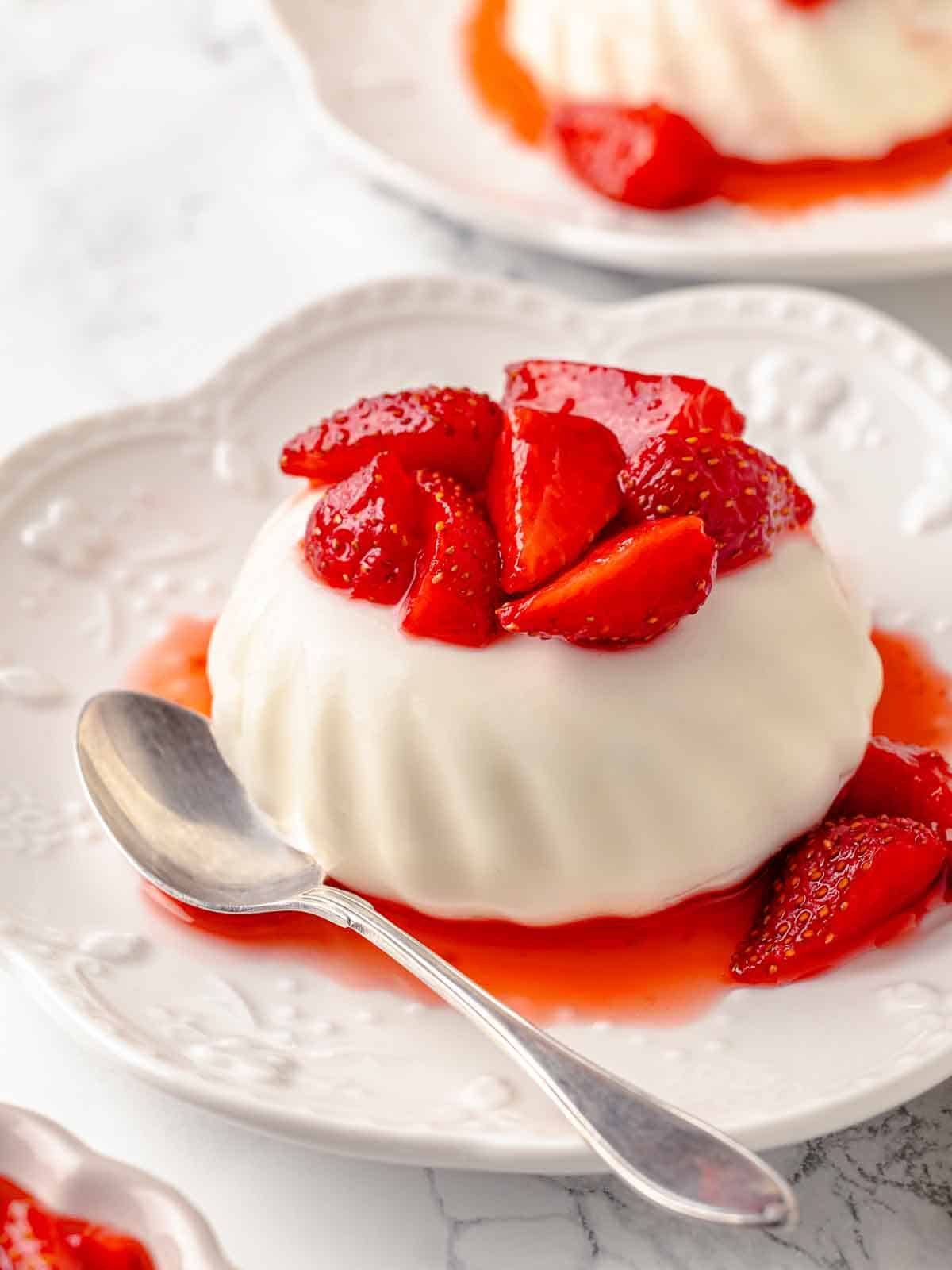
How to Make Buttermilk Vanilla Panna Cotta
Use these instructions to make this easy Italian dessert recipe! It is the perfect make-ahead dessert for a dinner party, Valentine’s Day or birthday celebration. Further details and measurements can be found in the recipe card below.
Make the panna cotta:
Step 1: Place 6 molds or ramekins on a rimmed baking sheet. Spray lightly with nonstick cooking spray.
Step 2: Bloom the gelatin: If using sheet gelatin, place individual sheets into ice water and allow to soften. This will take 5 minutes. Remove sheets and squeeze out excess water. Place in a dish to the side until ready to use, but don’t do this step more than 10 minutes in advance or the sheets will begin drying out. Rather, store them in the ice water.
If using powdered: In a small bowl whisk together the gelatin and cold water. Allow to sit undisturbed for 5 minutes.
Step 3: In a small saucepan bring ½ cup heavy cream, milk, salt and both sugars just to a boil over medium heat, stirring frequently to dissolve the sugars.
Step 4: Remove the pot with the boiling cream mixture from the heat, and add the bloomed gelatin and to ensure the sugar dissolves.
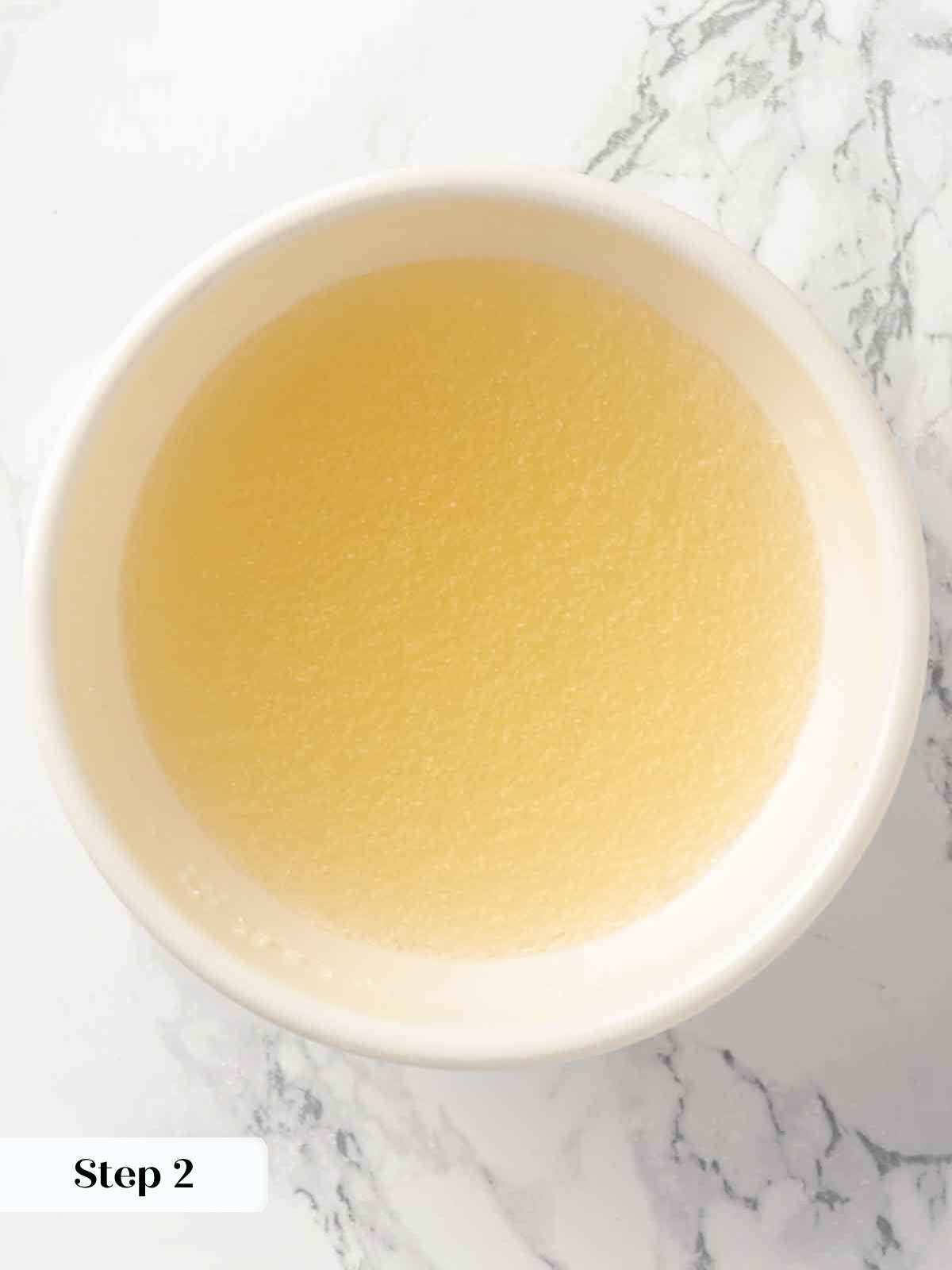
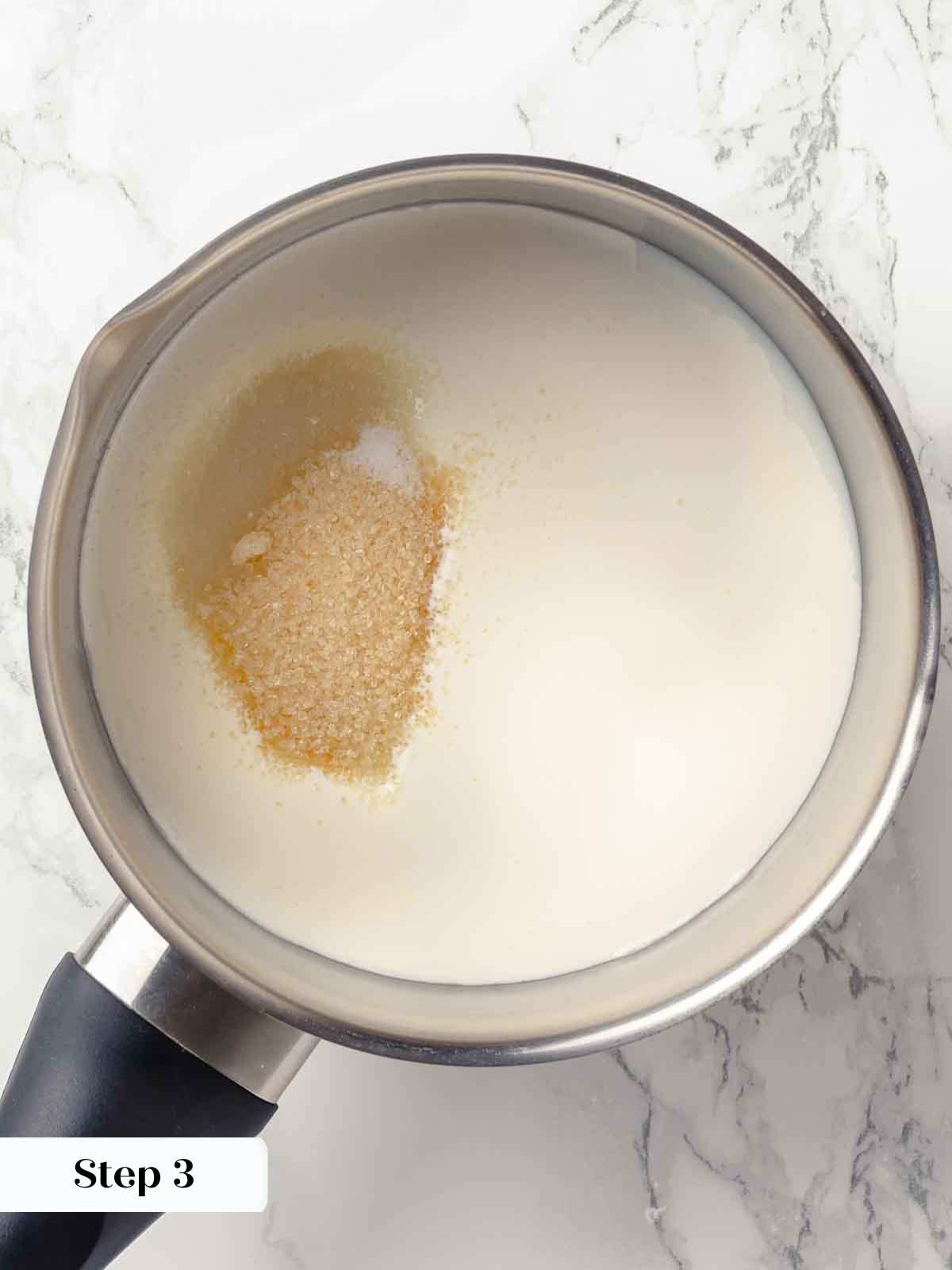
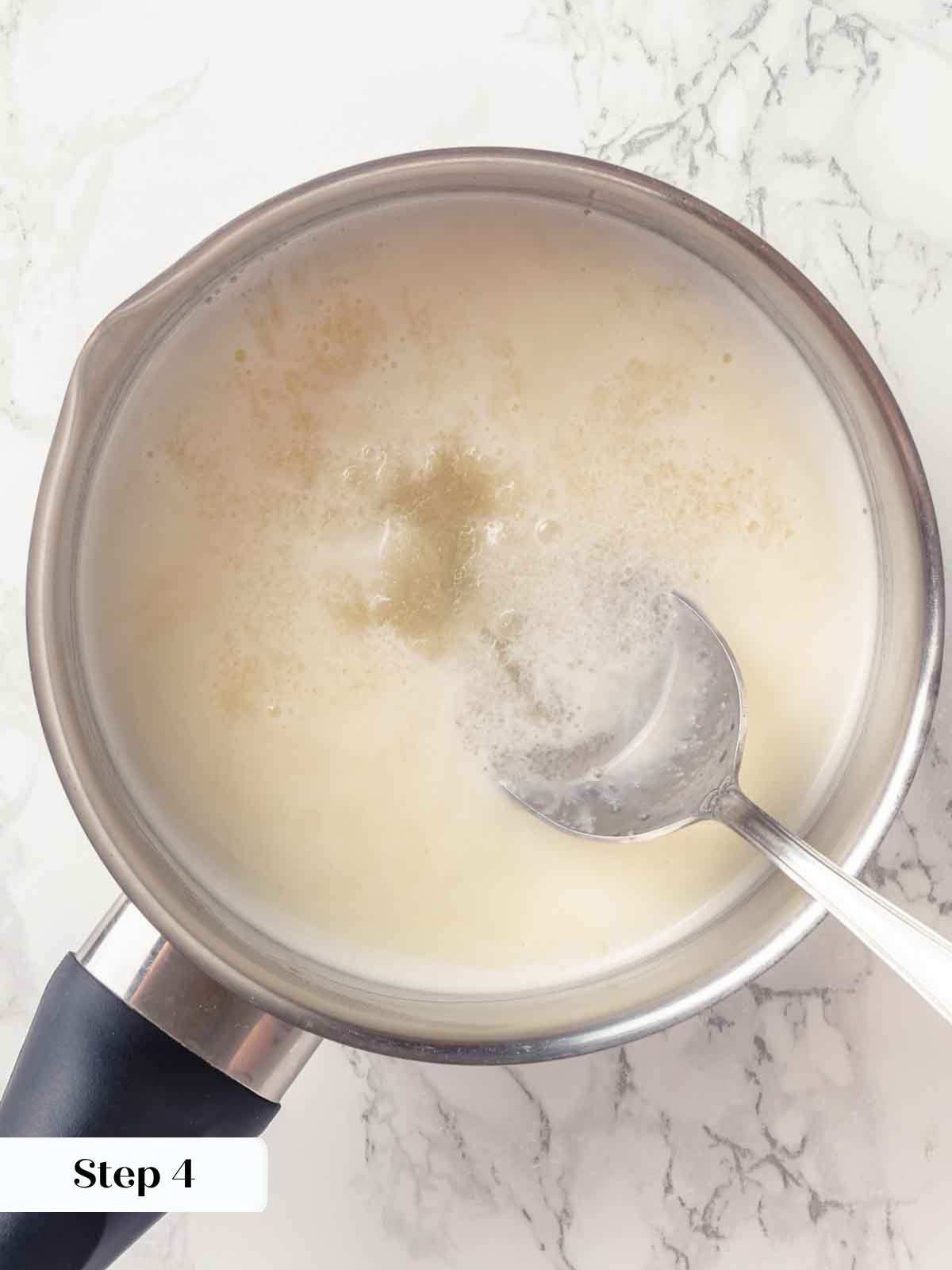
Step 5: In a separate bowl or blender, combine the remaining cold cream, buttermilk and vanilla extract. Pour the gelatin mixture into the cold ingredients and either briefly blend in blender or use a hand blender to incorporate. You can also use a whisk rather than a blender if using powdered gelatin.
You do want to make sure that the additional ingredients are very cold. This helps quickly lower the temperature of the panna cotta mixture, which will give you the best texture and taste. It also ensures the buttermilk doesn’t curdle.
Step 6: Divide between lightly sprayed molds. There is no need to strain the mixture unless you see lumps. Cover with plastic wrap and chill completely. 2 hours is the minimum but sometimes they still will not unmold. Because I like to use just enough gelatin to set the panna cotta, I chill 12 hours or overnight.
Step 7: To unmold, place desired serving plate or bowl upside down over the mold. Invert then shake to loosen the panna cotta from the mold and it should fall on the plate.
In the Italian restaurant where I served this (and a bunch of other variations), we briefly ran the outside of the mold under hot water (or dip in a bowl of hot water), over turn and shake it into your hand, then gently place on the plate or bowl for serving.
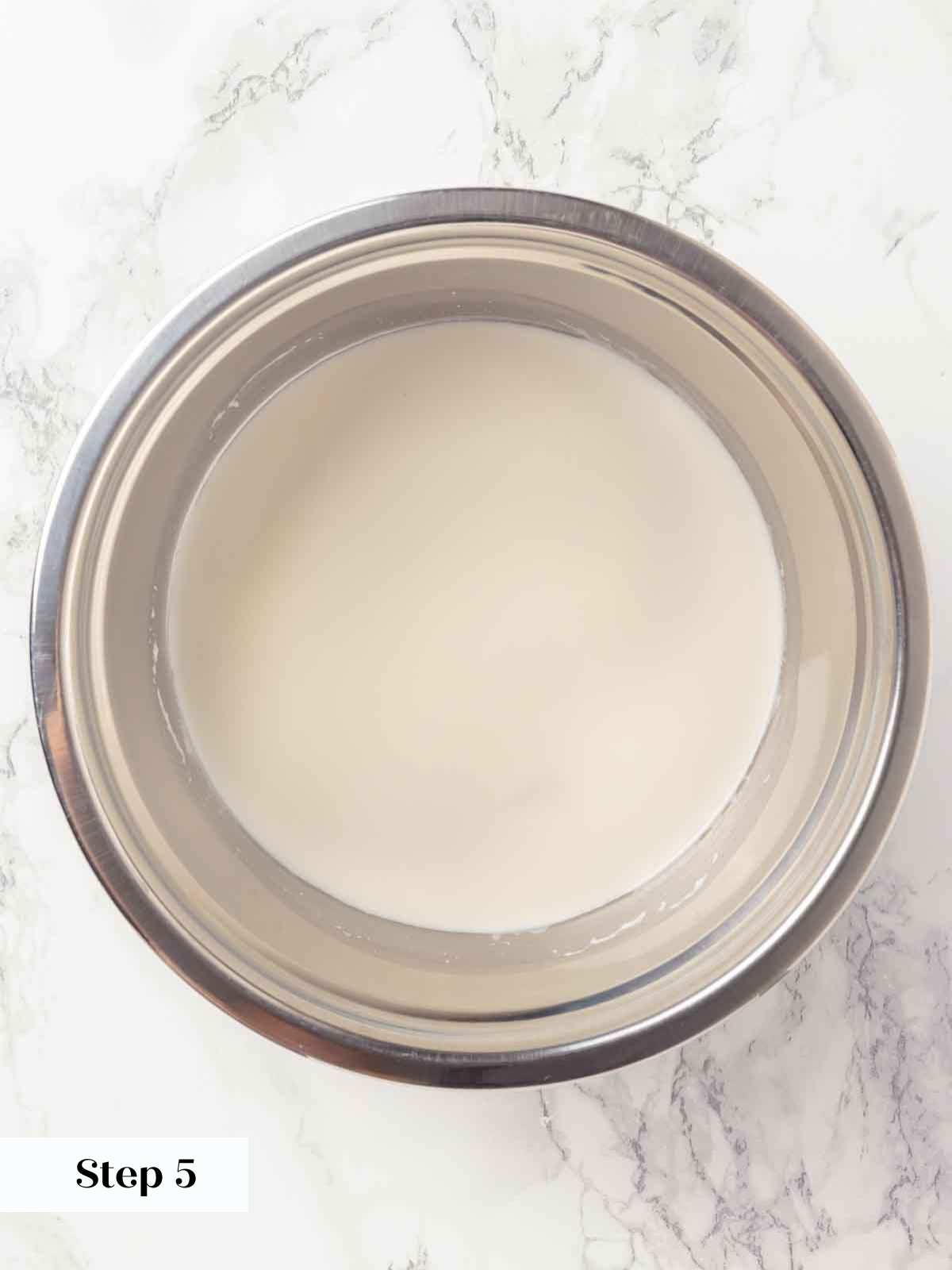

Macerate the strawberries:
Step 1: About an hour or so before serving, combine strawberries, sugar, zest and lemon juice in a bowl. Stir to distribute the sugar. Taste and adjust sweetness or lemon juice as needed.
Step 2: Cover and refrigerate at least an hour. This can be done the day before but eventually the strawberries will soften and be less pretty. Still tasty but not cute.
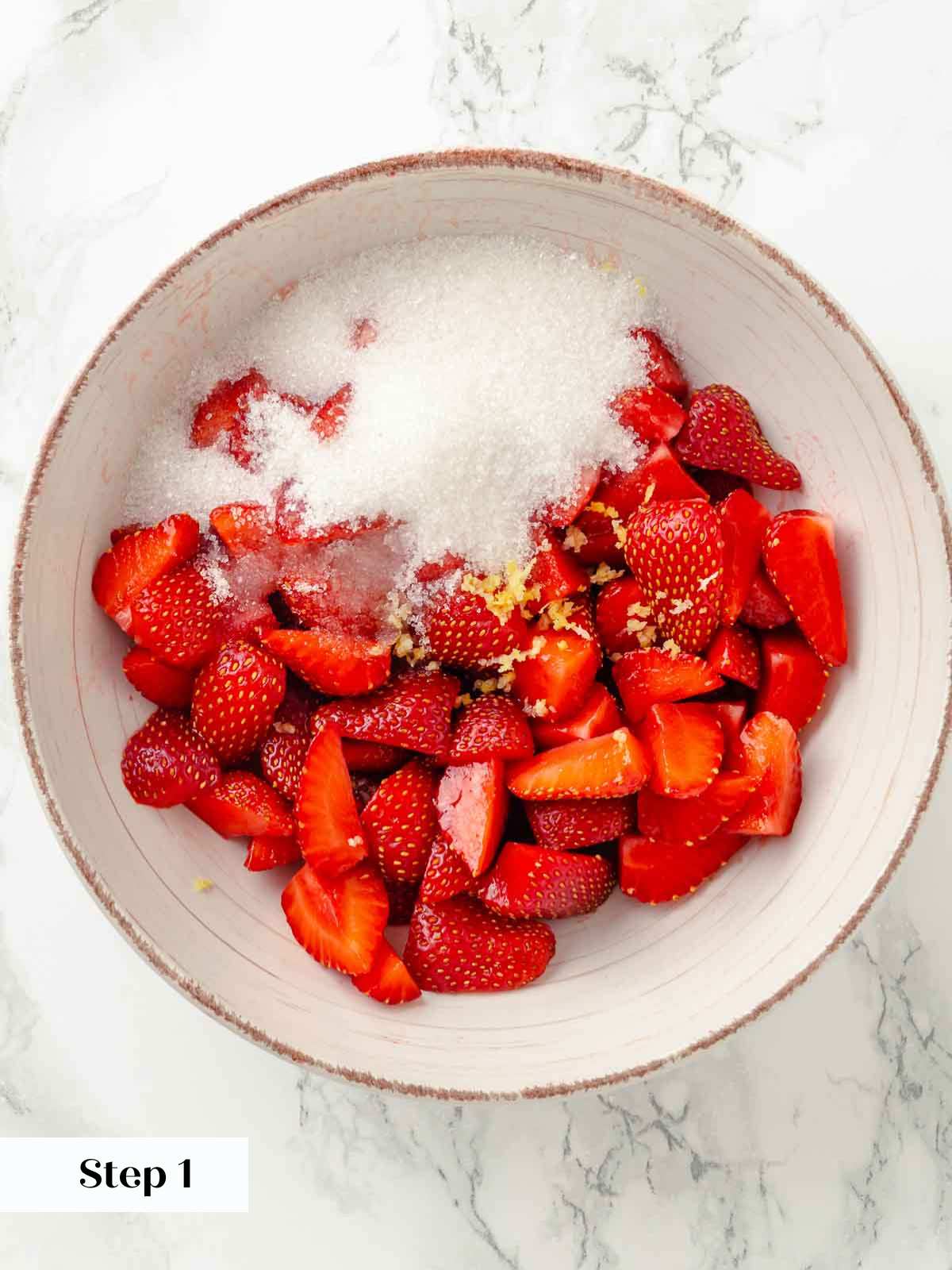
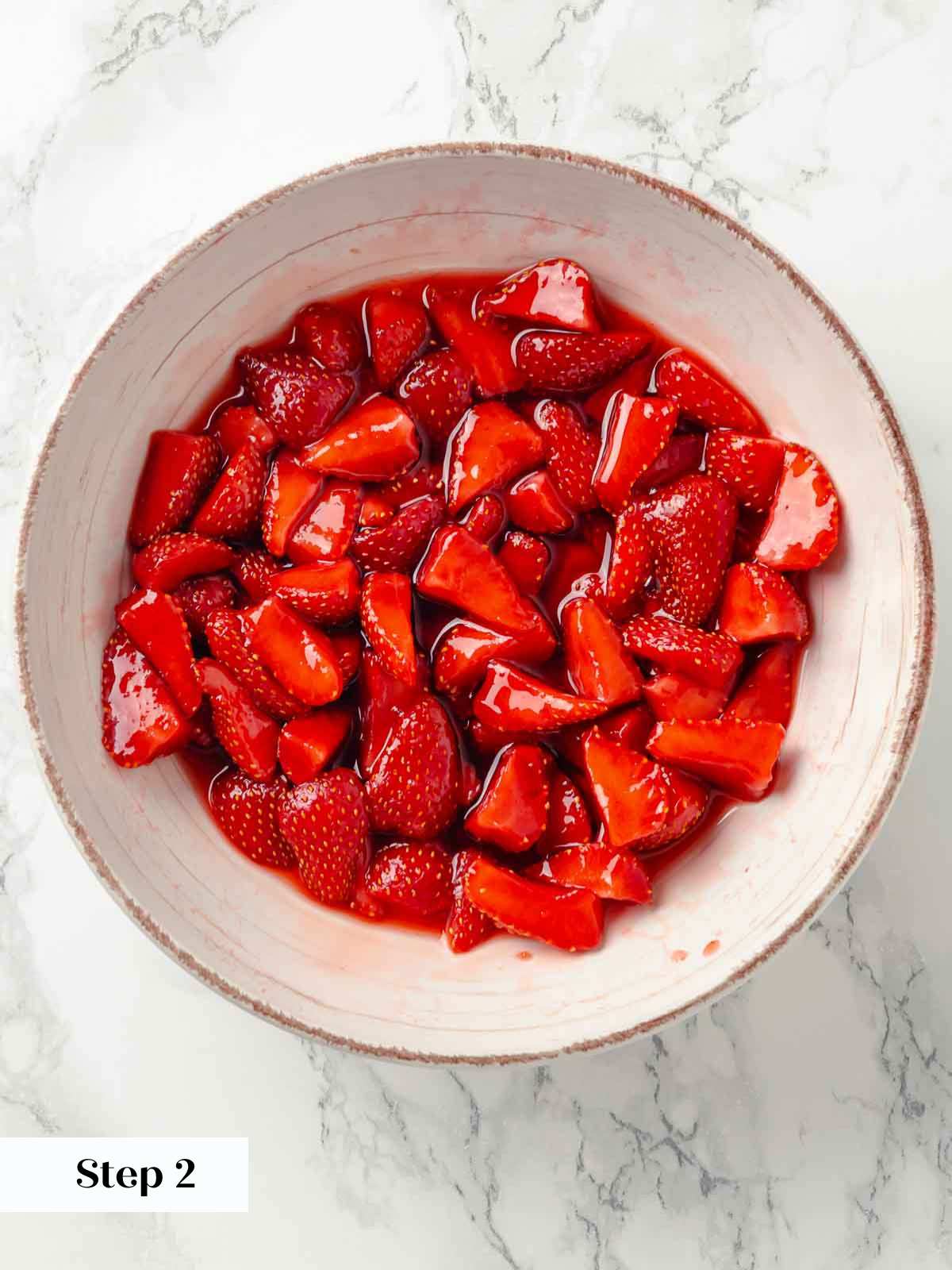
You can turn any of the left over macerated strawberries into this easy strawberry jam. I did that for a dessert in one of the restaurants where I was pastry chef. Waste not, want not as my great-grandmother always said.
Chef Lindsey’s Recipe Tip
You can make as large or small a batch of this panna cotta recipe. You can even make the mixture ahead and portion it for serving. Gently melt the panna cotta base over a pot of simmering water, portion and then allow at least 2 hours to set depending on how hot the mixture was.
Frequently Asked Questions
Store buttermilk panna cotta in the refrigerator for up to 3 days or frozen for 2 months. I do recommend storing them covered and unmolding immediately before serving. If frozen, allow 2 hours to thaw in the fridge after unmolding. In my professional experience, buttermilk panna cottas do not keep for as long as those made purely with milk and cream.
Panna cotta freezes very well and frozen panna cottas are a breeze to unmold. Be sure to refrigerate and chill the panna completely before freezing. Wrap and freeze for up to 2 months. To thaw frozen panna cotta, remove from the mold and place on serving plate, and thaw in the refrigerator. It typically takes 2 hours.
You can gently remelt panna cotta to pour it into cups or even to add a little more gelatin. To melt it place the panna cotta in a large bowl set over simmering water. Be sure the bottom of the bowl doesn’t touch the surface of the water. Stirring frequently, melt the panna over the water until almost fully melted. Remove bowl from the water bath and allow the residual heat to melt the rest of the panna mixture. Portion and then chill.
If you need to add more gelatin, add the additional bloomed gelatin to the melted panna cotta mixture and whisk well to combine. If you are using sheet gelatin, dissolve the bloomed, squeezed sheets in hot water or alcohol before adding to the melted panna mixture.
Vanilla pudding is a type of stirred custard that is thickened with eggs and or egg yolks and cornstarch, while panna cotta is not technically a custard and is thickened with gelatin. Panna cotta is not a custard because it doesn’t contain eggs.
If you tried this recipe and loved it please leave a 🌟 star rating and let me know how it goes in the comments below. I love hearing from you; your comments make my day!
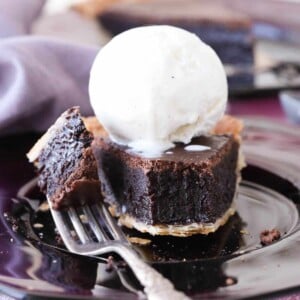

Buttermilk Panna Cotta
Ingredients
For the panna cotta:
- 4 teaspoons powdered unflavored gelatin or 2 ¾ silver gelatin sheets
- 6 tablespoons cold water only if using powdered gelatin
- 1/3 cup whole milk 86g
- ½ cup heavy cream 130g
- pinch kosher salt
- 2 tablespoons granulated sugar
- 1 tablespoon light brown sugar packed
- ½ teaspoon vanilla extract
- ¾ cup low fat buttermilk 195
- 2/3 cup heavy cream 173g
For the macerated strawberries
- 2 cups strawberries hulled, quartered
- ¼ cup granulated sugar
- 1 lemon zested
- 1-2 tablespoons lemon juice to taste
Instructions
Prepare the panna cottas:
- Place 6 molds or ramekins on a rimmed baking sheet. Spray lightly with nonstick cooking spray.
- Bloom the gelatin: If using sheet gelatin, place individual sheets into ice water and allow to soften. This will take 5 minutes. Remove gelatin sheets and squeeze out excess water. Place in a dish to the side until ready to use, but don’t do this step more than 10 minutes in advance or the sheets will begin drying out. Rather, store them in the ice water.
- If using powdered gelatin: In a small bowl whisk together the gelatin and cold water. Allow to sit undisturbed for 5 minutes.
- In a small pot bring ½ cup heavy cream, milk, salt and sugars just to a boil, stirring frequently to dissolve the sugars.
- Remove the pot with the boiling cream mixture from the heat, and add the bloomed gelatin. Stir to dissolve the gelatin.
- In a separate bowl or blender, combine the remaining cold cream, buttermilk and vanilla. Pour the gelatin mixture into the cold ingredients and either briefly blend in blender or use a hand blender to incorporate. You can also use a whisk rather than a blender, but a blender will give the best final texture.
- Divide between lightly sprayed molds. Cover with plastic wrap and chill completely. 2 hours is the minimum but sometimes they still will not unmold. I like to ride the line between using just enough and not enough gelatin. This produces a panna cotta with perfect mouth feel. It should melt in the mouth rather than feel like Jello. To that effect, I chill overnight always.
- To unmold, place desired serving plate or bowl upside down over the mold. Shake to loosen the panna cotta from the mold and it should fall on the plate. In the Italian restaurant where I served this (and a bunch of other varieties), we briefly ran the outside of the mold under hot water (or dip in a bowl of hot water), over turn and shake it into your hand, then gently place on the plate or bowl for serving. I prefer the look of fluted metal molds but ramekins also work.
Macerated strawberries:
- About an hour or so before serving, combine strawberries, sugar, zest and lemon juice in a bowl. Stir to distribute the sugar. Taste and adjust sweetness or lemon juice as needed.
- Cover and refrigerate at least an hour. This can be done the day before but eventually the strawberries will soften and be less pretty. Still tasty but not cute.
- Pile a few strawberries on top and allow some to fall to the side and add some of the strawberry juices to the plate.
Notes
Presentation – Serve with baked streusel, toasted or candied nuts or granola for a crunchy component and then the macerated strawberries or any other fresh fruit or berries.
Flavor Tips – Be sure the buttermilk and additional cream are cold, so that the mixture cools quickly and the buttermilk doesn’t curdle.
Storage – Store buttermilk panna cotta in the refrigerator for up to 3 days or frozen for 2 months. I do recommend storing them covered and unmolding immediately before serving. If frozen, allow 2 hours to thaw in the fridge after unmolding.
Nutrition
Before You Go
I hope you enjoyed this professional chef created recipe. While panna cotta does not contain eggs, and is, therefore, not a custard, it has the texture of a silky set custard like vanilla crème brûlée. Peruse all of our custard recipes or branch further out and try a creamy lemon posset with easy cherry sauce!
